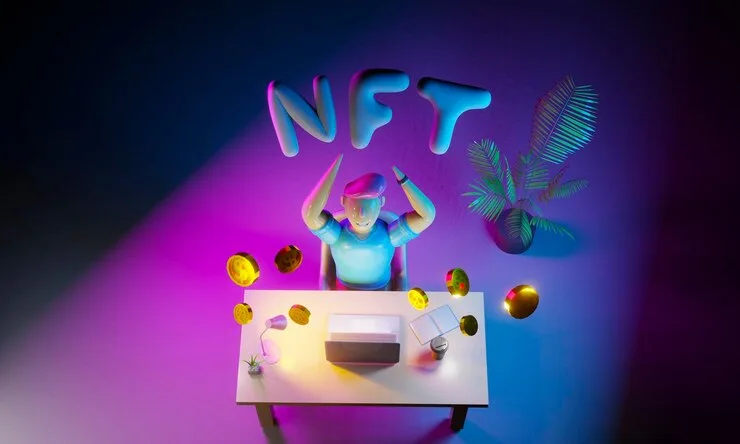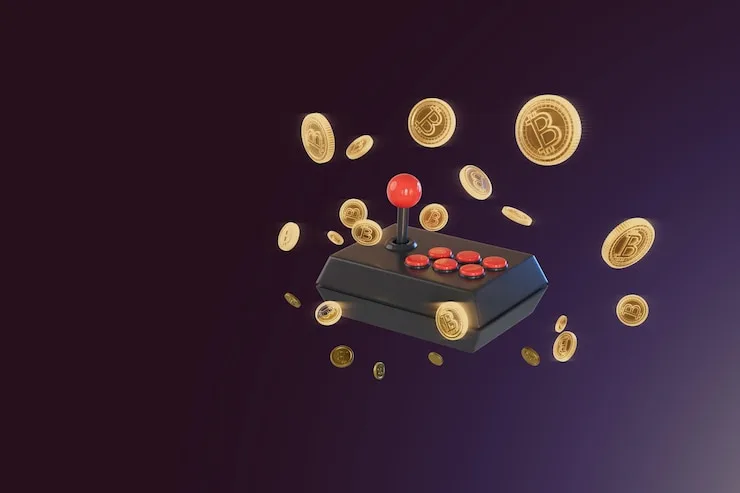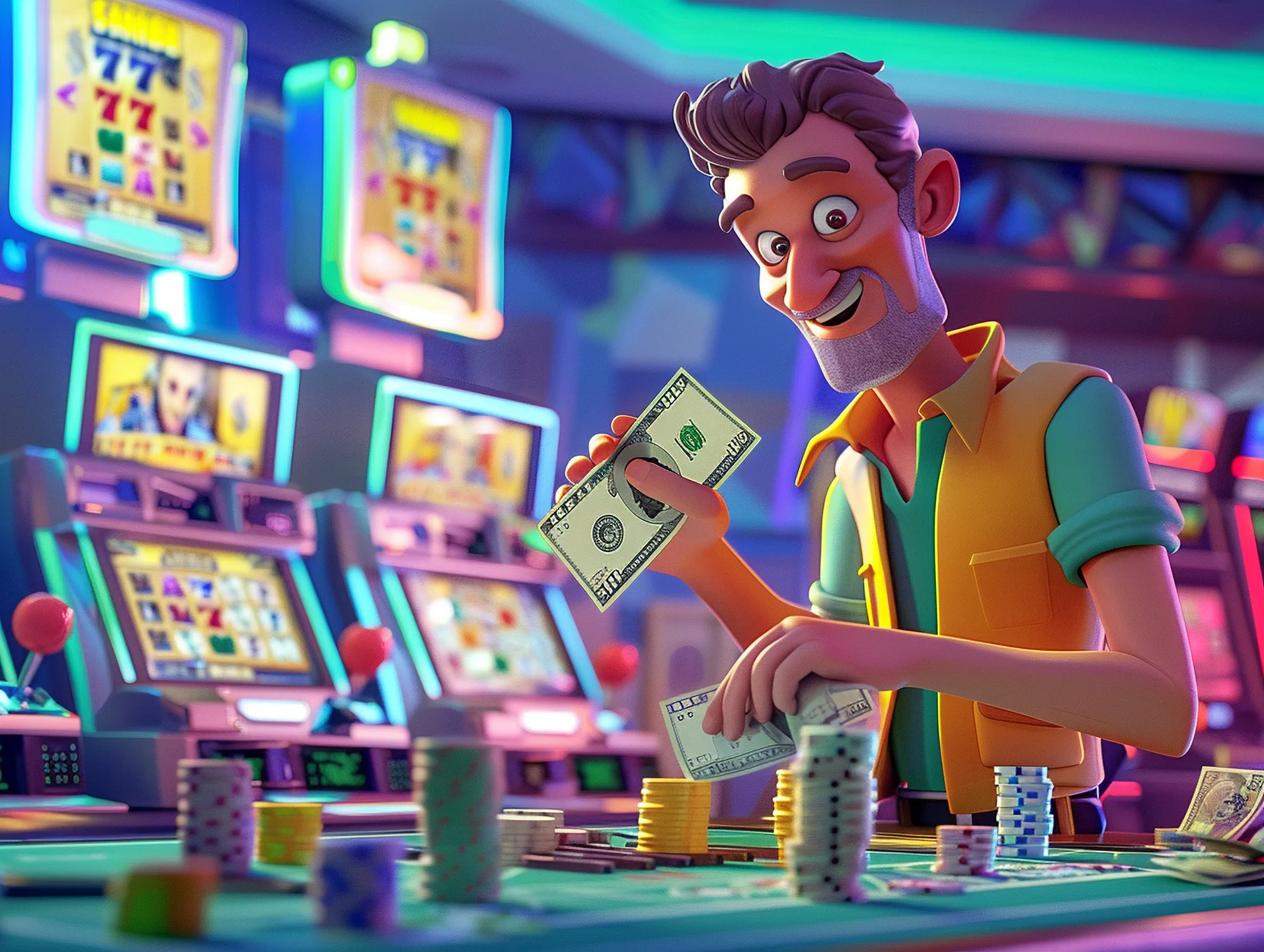- Introduction: Understanding NFT Games
- The Technology Behind NFT Games
- Economic Model of NFT Games
- Educational Benefits of NFT Games for Students
- Popular NFT Games in 2025
- How to Start Playing NFT Games
- Risks and Challenges of NFT Games
- The Future of NFT Games
- Expert Opinions and Industry Insights
- How NFT Games Shape the Future Workforce
- Frequently Asked Questions
- Conclusion: Embracing the Future of Play
- External Resource
Introduction: Understanding NFT Games
In the evolving digital landscape, NFT Games have become a defining force in the gaming and technology sectors. These games merge blockchain technology with traditional entertainment, giving players genuine ownership over digital assets and the ability to earn through gameplay. For students, NFT games represent more than a trend—they’re a new way to learn about digital finance, decentralized economies, and creative innovation.
The gaming world has long been a playground for imagination. However, NFT games elevate this by integrating real-world economic incentives with entertainment, bridging the gap between gaming and investing. As a result, players can own, trade, and monetize in-game assets like characters, land, and collectibles—all securely recorded on blockchain networks.
The Technology Behind NFT Games
Blockchain and Smart Contracts in Gaming
NFT games rely on blockchain networks such as Ethereum, Polygon, and Solana to authenticate and store ownership data. Every digital item within these games is represented as a non-fungible token (NFT)—a unique digital certificate that proves ownership.
Smart contracts, automated programs that execute predefined rules, ensure transparent transactions and reduce fraud. This technology creates trustless environments where players no longer depend on centralized servers or corporate intermediaries.
Tokenization and Ownership
In traditional games, virtual assets exist only within the game’s ecosystem and vanish when servers shut down. In NFT games, tokenization transforms these assets into player-owned digital property. Students can understand firsthand how decentralized ownership models challenge conventional game economics and empower users.
Economic Model of NFT Games
Play-to-Earn (P2E) Mechanism Explained
The Play-to-Earn model revolutionized gaming by enabling players to earn tokens and NFTs with real-world value. This system encourages active engagement and rewards skill development, making games not just a leisure activity but a potential source of income.
The Role of Cryptocurrency in Gaming Ecosystems
NFT games are powered by cryptocurrencies that facilitate peer-to-peer transactions, in-game purchases, and NFT trading. Students exposed to these systems gain practical knowledge about digital wallets, DeFi (Decentralized Finance), and the fundamentals of crypto-economics.
Educational Benefits of NFT Games for Students
NFT games aren’t just about entertainment — they also serve as innovative learning tools that teach students about technology, finance, and entrepreneurship in an engaging way. Let’s explore how these games enhance learning and skill-building.
Learning Digital Asset Management
NFT games immerse players in the world of digital ownership and blockchain-based assets. Students learn how to manage crypto wallets, trade digital items, and understand asset valuation in virtual economies. These skills mirror those used in real-world digital asset management and finance.
For example, managing a collection of NFT characters in Axie Infinity is similar to handling a small investment portfolio. Players must track values, monitor trends, and make strategic trades, which builds practical decision-making and analytical skills.
Promoting Financial Literacy Through Gaming
Traditional education systems rarely cover cryptocurrency or decentralized finance (DeFi) — but NFT games fill this gap. By participating in play-to-earn (P2E) ecosystems, students gain firsthand experience in earning, saving, and trading digital currencies.
These games foster financial literacy by teaching:
-
The basics of cryptocurrency transactions.
-
The importance of supply, demand, and scarcity.
-
Risk management and market analysis.
As a result, NFT gaming becomes a hands-on classroom where theory meets practice.
Real-World Applications of NFT Gaming Skills
The skills gained from NFT gaming — such as strategic planning, market evaluation, and tech literacy — are directly applicable in real-world careers. Students can pursue paths in blockchain development, game design, finance, or entrepreneurship.
Moreover, understanding the NFT ecosystem prepares students for emerging industries like the metaverse, where digital identity and ownership will play crucial roles.
Popular NFT Games in 2025
As blockchain gaming matures, a new generation of NFT games has emerged, offering immersive gameplay, advanced graphics, and rewarding tokenomics. Below are some of the most impactful NFT games in 2025.
Axie Infinity: The Pioneer of P2E Gaming
Axie Infinity remains a cornerstone of the NFT gaming revolution. Players collect, breed, and battle creatures known as Axies, each represented by an NFT.
The game popularized the play-to-earn model, allowing users to earn tokens such as SLP (Smooth Love Potion), which can be traded for real-world value. For students, Axie Infinity serves as a gateway to understanding the intersection of gaming, investing, and digital ownership.
The Sandbox: A Metaverse Built by Players
The Sandbox is a virtual world where players can build, own, and monetize experiences using the platform’s native token, SAND.
It empowers creativity and entrepreneurship — students can design virtual real estate, host digital events, or sell in-game assets. The Sandbox exemplifies user-generated economies and gives learners insight into how the creator economy thrives in digital spaces.
Decentraland: Virtual Reality Meets Blockchain
In Decentraland, users explore a fully decentralized virtual world powered by Ethereum. Each land parcel is an NFT, and owners can build experiences ranging from art galleries to educational campuses.
For students, Decentraland illustrates how blockchain integrates with virtual reality (VR) to create interactive, educational environments.
Gods Unchained: NFT Trading Card Excellence
Gods Unchained is a strategic trading card game where each card is an NFT with real value. Players earn through strategic gameplay and trading cards on secondary markets.
This game combines skill-based competition with economic opportunity, promoting strategic thinking, probability analysis, and digital commerce — all crucial skills for the modern student.
Illuvium: AAA Gaming Meets Decentralized Finance
Illuvium stands out as a AAA-quality NFT game with cinematic graphics and deep gameplay. Players capture creatures known as Illuvials, which can be traded or used in battle.
Its advanced integration of DeFi and gaming mechanics shows how blockchain can power high-end entertainment experiences while maintaining real asset ownership.
How to Start Playing NFT Games
For students eager to join the NFT gaming world, the process is straightforward but requires some preparation. Here’s a step-by-step guide.
Setting Up a Crypto Wallet
A crypto wallet is essential for managing NFTs and game tokens. Popular choices include MetaMask, Trust Wallet, and Coinbase Wallet. These wallets store digital assets securely and connect players to blockchain-based games.
Tip: Always use two-factor authentication (2FA) and store recovery phrases securely to protect your digital assets.
Buying and Managing Game Tokens
Most NFT games require native tokens to play or transact. Students can purchase these tokens through cryptocurrency exchanges like Binance or Coinbase, then transfer them to their gaming wallets.
Learning to handle tokens teaches important lessons about asset transfer, transaction fees, and blockchain verification.
Selecting a Reliable NFT Marketplace
NFT marketplaces such as OpenSea, Magic Eden, and Rarible allow players to buy, sell, and trade in-game assets. Students should look for platforms with strong security measures, verified projects, and transparent pricing to avoid scams.
Risks and Challenges of NFT Games
While NFT games offer exciting opportunities, they also present certain challenges students must understand.
Market Volatility and Investment Risks
NFT and crypto markets are known for high volatility. Asset prices can fluctuate dramatically due to demand, speculation, or regulatory changes. Students should approach NFT gaming as an educational experience rather than a guaranteed income source.
Security Issues and Scams
Because NFT games operate in decentralized environments, scams and phishing attacks are common. Players should verify URLs, avoid suspicious links, and research projects thoroughly.
Understanding cybersecurity basics is vital for any student involved in blockchain ecosystems.
Ethical and Environmental Concerns
Blockchain technology, particularly older systems like Ethereum’s proof-of-work model, has faced criticism for energy consumption. However, many NFT games are transitioning to eco-friendly, proof-of-stake blockchains that significantly reduce environmental impact.
Students should be aware of these ethical implications as they evaluate the sustainability of blockchain innovations.
The Future of NFT Games
NFT gaming is still in its infancy, but its trajectory points toward a more interconnected and immersive digital world.
Integration with AI and the Metaverse
Artificial Intelligence (AI) is set to enhance NFT gaming through adaptive gameplay, realistic NPCs, and data-driven personalization. Meanwhile, the metaverse — a shared virtual space combining multiple platforms — will allow seamless integration between games, education, and social experiences.
Growth of Cross-Chain Gaming Platforms
Developers are moving toward cross-chain systems, enabling assets to move between blockchains like Ethereum, Polygon, and Binance Smart Chain. This interoperability increases liquidity, accessibility, and innovation in the NFT gaming ecosystem.
Institutional Adoption and Mainstream Gaming
Major gaming studios and universities are starting to integrate blockchain elements into their platforms and curricula. Students studying game design or finance may soon encounter NFT modules in academic programs, further solidifying this technology’s legitimacy.
Expert Opinions and Industry Insights
The rise of NFT games has drawn attention from multiple disciplines — from gaming studios to financial analysts and educators. Their insights shed light on how this digital revolution is shaping the future of entertainment, learning, and work.
Perspectives from Game Developers
Game developers view NFT games as the next frontier in interactive storytelling and player empowerment. According to blockchain game studios, the integration of NFTs allows developers to create transparent economies where players truly own their digital creations.
Developers also emphasize the community-driven aspect of these games. Unlike traditional gaming models where developers retain full control, NFT ecosystems rely heavily on user participation, voting, and governance. This decentralized structure ensures that players help shape the game’s evolution, fostering a deeper sense of belonging and engagement.
Financial Analysts on NFT Game Economies
Financial experts see NFT gaming as a bridge between digital entertainment and investment markets. The ability to trade in-game assets as NFTs has introduced liquidity and real-world value to virtual economies.
However, analysts caution that market speculation can inflate NFT prices beyond sustainable levels. Students should approach NFT games with an educational mindset, focusing on the underlying blockchain principles rather than short-term profit motives. This awareness builds financial literacy and critical thinking skills valuable in any future career.
Educational Experts on Learning Through Play
Educational specialists believe that NFT games are reshaping how young people learn digital skills. By blending gaming with blockchain mechanics, these platforms teach 21st-century competencies such as coding, cryptography, entrepreneurship, and economics.
Experts argue that NFT games act as informal learning environments, where students gain practical knowledge through experimentation and creativity — much like early internet communities that pioneered digital innovation.
How NFT Games Shape the Future Workforce
NFT gaming is more than a pastime — it’s an incubator for future-ready skills. As industries evolve, the knowledge and competencies developed through NFT ecosystems will align with the demands of tomorrow’s workforce.
Digital Skills for the Next Generation
Students who engage in NFT gaming develop technical fluency in blockchain operations, token economies, and smart contracts. These competencies are increasingly sought after in sectors such as fintech, cybersecurity, software development, and data analytics.
Moreover, NFT games cultivate soft skills like collaboration, leadership, and strategic decision-making through community governance models and in-game economies. These transferable skills enhance employability across diverse professional fields.
Opportunities in Game Development, Design, and Marketing
NFT games open doors to new careers in game design, digital marketing, 3D modeling, and blockchain development. The demand for professionals who can blend creativity with technical expertise is rising rapidly.
Students can explore career paths such as:
-
Blockchain Game Developer: Building decentralized game mechanics.
-
NFT Artist/Designer: Creating digital assets with market value.
-
Community Manager: Overseeing decentralized gaming communities.
-
Crypto-Economist: Designing sustainable in-game token economies.
NFT gaming thus acts as a career launchpad, equipping students with the digital literacy and entrepreneurial mindset needed in an increasingly decentralized job market.
Frequently Asked Questions
Conclusion: Embracing the Future of Play
Why NFT Games Are Here to Stay
NFT games have evolved from niche experiments to mainstream digital ecosystems driving the future of entertainment and education. Their unique blend of blockchain innovation, economic opportunity, and creative freedom makes them an enduring part of the gaming industry’s evolution.
Students stand to benefit immensely from exploring NFT games — not only as players but as creators, innovators, and digital citizens shaping the next generation of virtual worlds.
Balancing Fun, Learning, and Earning
The success of NFT games lies in their ability to balance enjoyment, education, and empowerment. For students, these games are more than digital playgrounds — they’re gateways to understanding technology, finance, and the future of online collaboration.
As blockchain technology continues to mature, NFT gaming will likely expand into areas like education, business simulation, and social innovation, turning learning into an interactive, profitable, and enjoyable experience.
External Resource
For readers who want to explore NFT gaming in greater depth, visit:
🔗 CoinDesk’s NFT Gaming Guide — an excellent resource explaining how NFTs, blockchain, and the metaverse intersect to shape the future of play-to-earn economies.




Discussion (0)